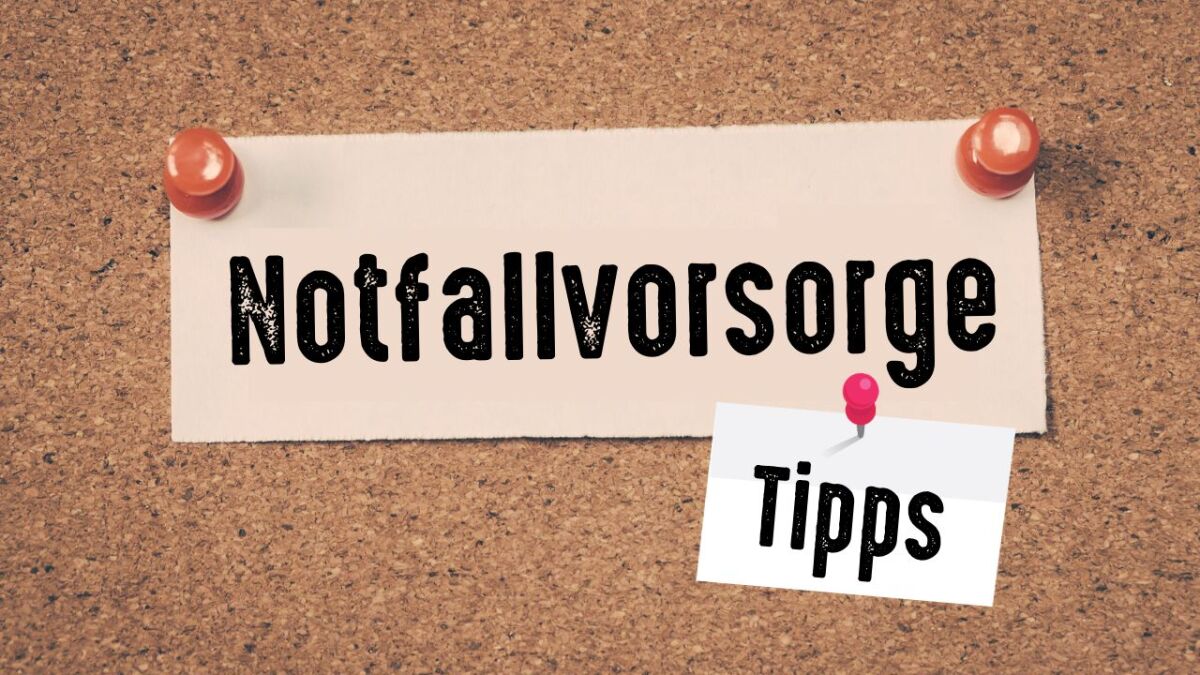
11 serious tips for emergency preparedness that everyone should know
👉 The key facts from this guide
- Have food, water, and equipment ready for at least three days and pay attention to their shelf life.
- Invest in a water purification system to have access to clean water in times of crisis.
- Create an emergency plan and be prepared for various scenarios.
- Get to know your surroundings and integrate into your community.
- Store your emergency supplies in different locations to access them in different situations.
- Maintain your physical fitness and health to better cope with physical and mental stress.
Life can be unpredictable and accidents can happen constantly. But every emergency is a chance to learn, and we should be prepared for crises.
Even if you have a plan, handling crises can be difficult. They can happen spontaneously and from unexpected places.
Therefore, I have put together 11 serious emergency preparedness tips for you that everyone should know.
They will help you cope with crises when they happen.
It only takes a few minutes to read these tips, and you will be familiar with the basics.
Remember them the next time you need them.
1. Keep food, water, and supplies for at least three days
You may be surprised when you read this tip. Having a certain amount of food and water at home should be a given, shouldn't it?
That's right. But unfortunately, some preppers get so caught up in details, gadgets, and the thorough development of their bug-out plans that these basics are not adequately considered.
Food
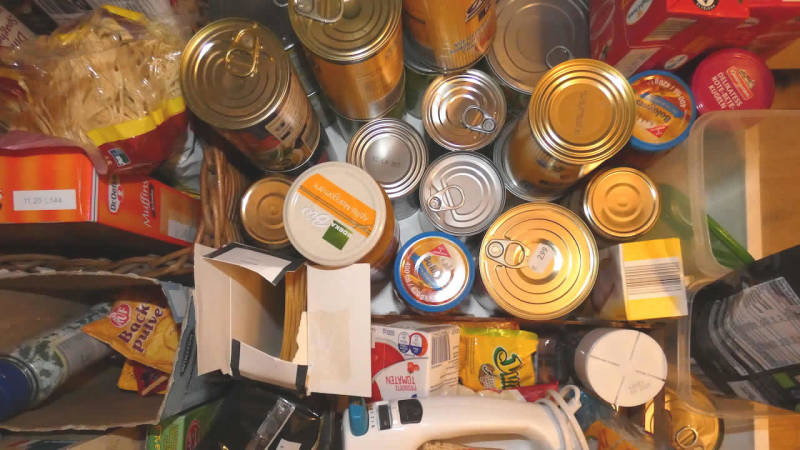
When building up a supply of food, you should focus primarily on its shelf life. It won't do you any good if you have abundant supplies of food, but it spoils within a short time.
Canned goods, pickled food, or specially tailored emergency food supplies, like those from sichersatt.de, that are easy to store, are excellent choices.
Also consider that in case of emergency, there may also be a collapse of the power grid (What is a blackout?), so that freezers or refrigerators may no longer work.
Therefore, pay more attention to having food in stock that does not necessarily need to be refrigerated to remain usable for a long time.
Furthermore, regularly check if your food is still good. A regular inventory check helps you keep your supplies usable and organized. Use our supply calculator to calculate how much food you need.
Water
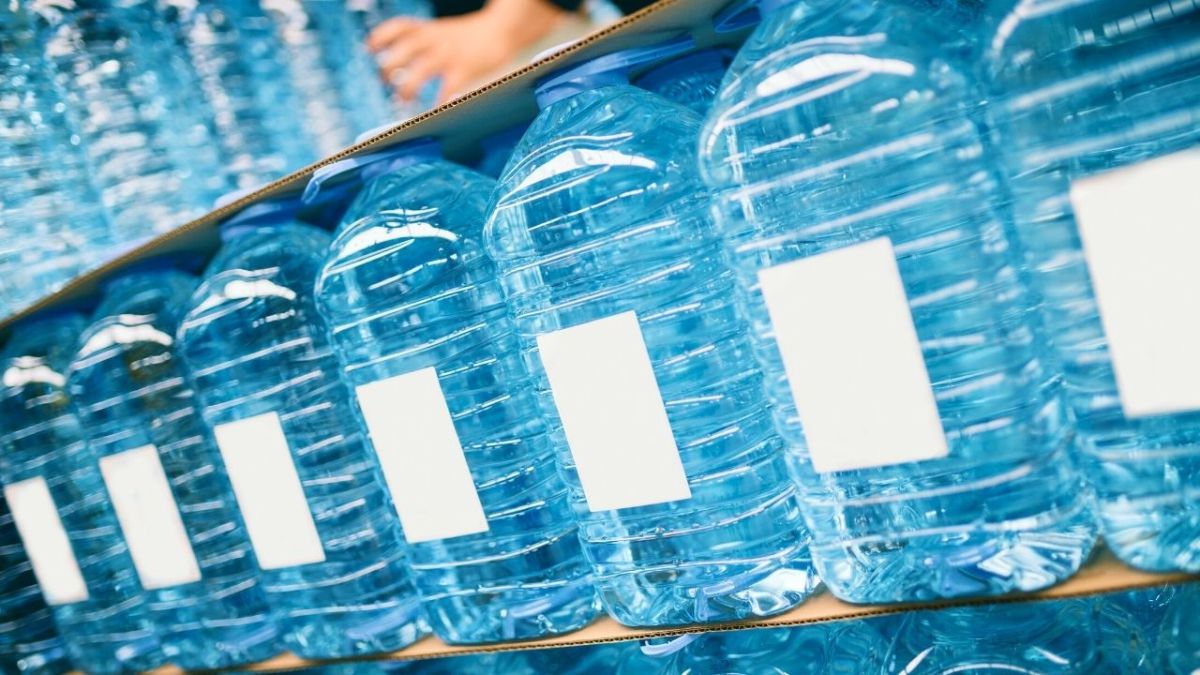
When it comes to your water supply, you should be particularly thorough and responsible.
Keep in mind that in the worst case, you will not only need water to drink, but also to wash yourself and your clothes (This is how you wash clothes without electricity). So here, pay even more attention to an appropriate amount and cleanliness.
To make this clear from the start: This tip can not only be applied to food and water, but also applies generally. You require at least two liters of water per day. Use my water calculator to calculate your supply.
Equipment
When public services collapse, one of the most important aspects of emergency preparedness is having the right equipment. This includes things like flashlights, batteries, first aid kits, and more. It is significant that these items are readily available in an emergency.
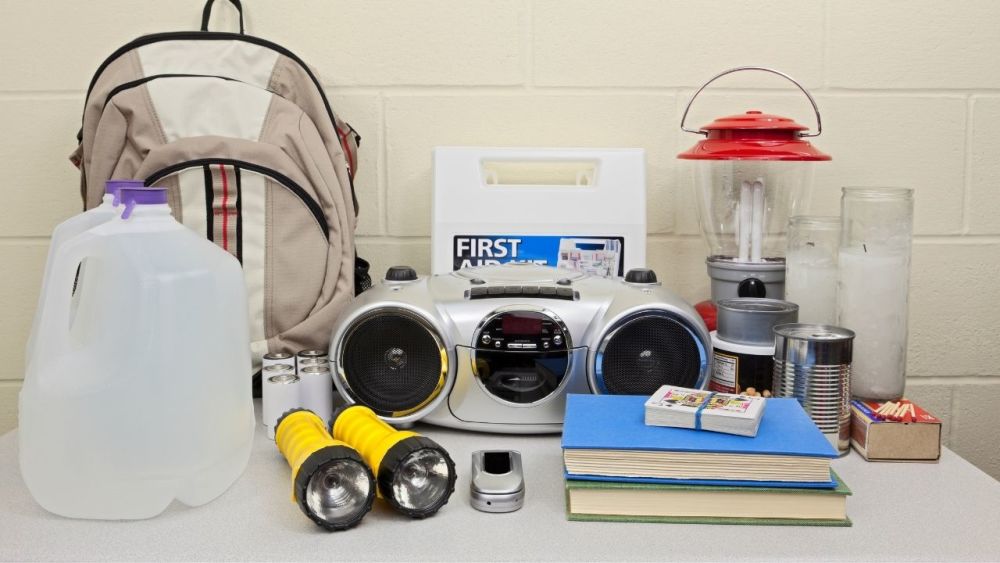
You should also continue to consider the following things:
- Medications, including prescription medications
- A basic set of tools, including a hammer, screwdriver, and pliers
- A list of emergency contacts, including family, friends, and your doctor or health care provider
- A battery-powered radio, ideally with a solar panel
- A propane camping stove
- A document folder with important documents
- Hygiene items
- Candles and lighter/matches
- Additional blankets and warm clothing, including a hat
In my detailed guide to emergency preparedness lists, you will find every detail that can help you in an emergency. I have also provided a checklist to print out.
For information on other civil defense topics, please visit the Federal Office of Civil Protection and Disaster Assistance (BBK).
2. Invest in a water purification system
Whatever your plans may be, one thing still holds true in a crisis: You always need clean water, year-round, day and night.
If clean water is no longer available, things can get ugly. This can happen, for example, during emergencies such as power outages or floods. So it's best to invest now in a suitable water purification system.
Whether it's a technically sophisticated filter system, a water filter for hiking (here's my top list) for drinking water or simple water purification tablets (buy here) - everything that helps you to access clean water is essential equipment.
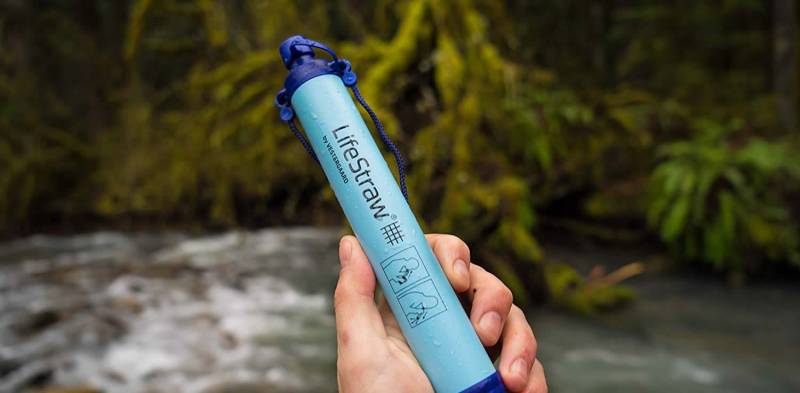
You need clean water for the following:
- Drinking water for hydration. Dehydration leads to death within a few days.
- Personal hygiene: I don't think you want to smell beastly over time, do you?
- Sanitation and health care and treatment of wounds: Cleaning wounds as well as sanitation and health care increase the likelihood of avoiding infections enormously.
- Washing items, clothing, or even food
- Preparation of meals (cooking)
To put it very plainly: without clean water, you are disadvantaged. So make sure you already have a water purification system of your choice.
If you want to read up on the subject a bit or are not sure how water purification works, it's best to check out this article on my blog: Finding, collecting, filtering and making drinking water drinkable.
3. Have a plan and be prepared
This tip may seem very generally worded at first glance, but it addresses a specific problem that affects many preppers.
To avoid being impacted by it, this section is provided. So stay attentive, even if you think you already know what this tip has in store for you.
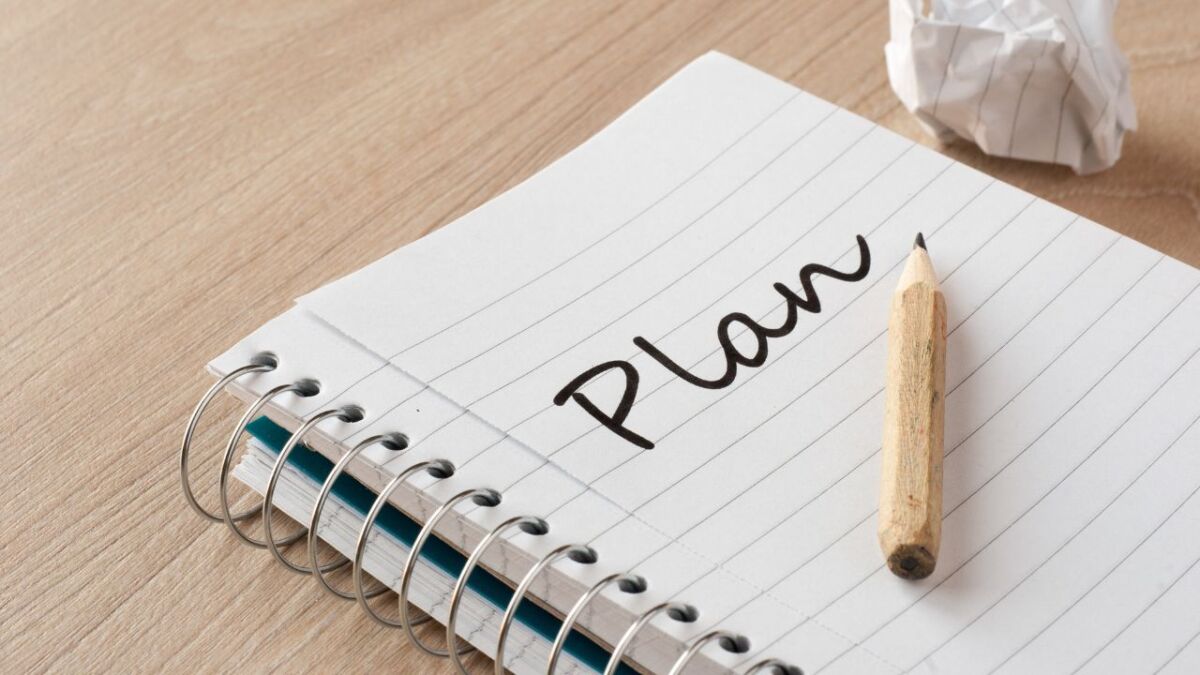
Most people prepare for an SHTF scenario, such as a power outage, by stocking up on supplies, preparing hideouts or bug-out locations, and acquiring certain skills that could be useful to them in the future.
Basically, this is precisely the right thing to do, as these activities prepare you indirectly for the worst-case scenario.
However, what can never be neglected is the actual plan.
All your supplies, hideouts, and skills are useless if you have no idea how to use them correctly.
A bug-out location is worthless if you have no plan to get there. Your skills are of no use if you use them without focus on your goal.
I'm not saying you should design an overly complicated plan that consists of so many steps and is infused with micromanagement, making it nearly impossible to implement in reality.
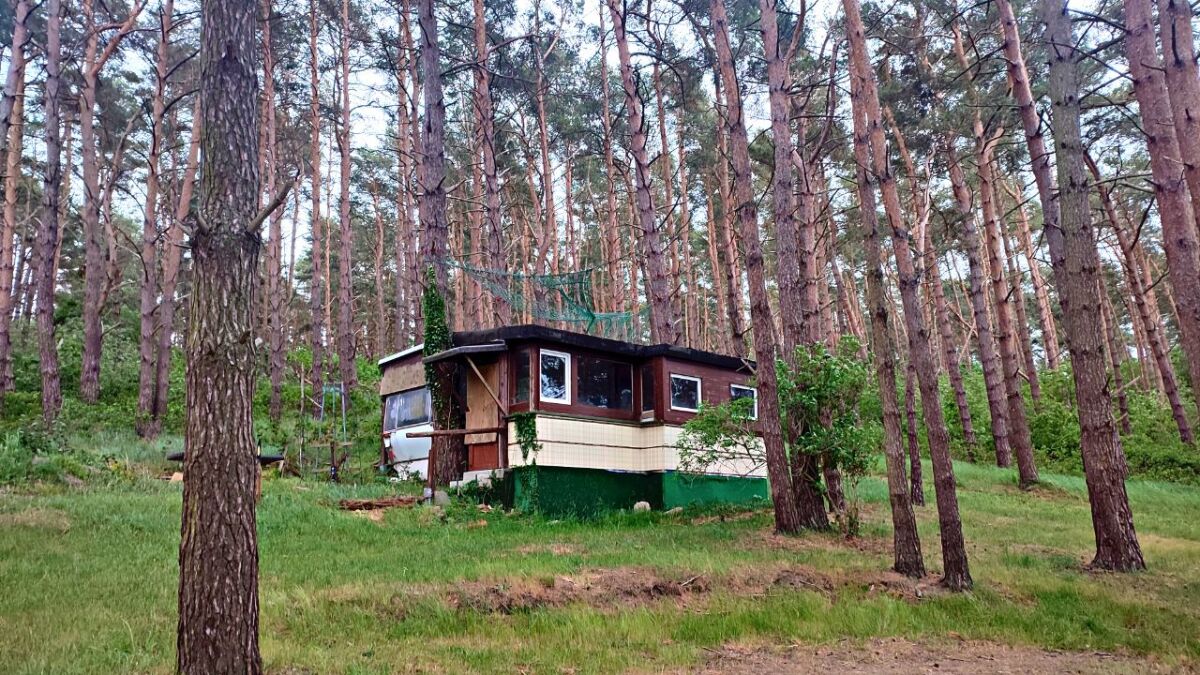
However, it is important to plan out rough steps and measures to be taken when SHTF. These include, for example, the following:
- How do I get to my bug-out location?
- How do I ration my food?
- Which people do I contact or stay in contact with?
- Do I stay in one place longer or move to a different location?
- Do I need to take care of children, elderly people or other people in need? If so, what is the best way to do so?
You will surely think of other questions that can be answered in advance through responsible planning.
However, don't get too lost in the details. Include the points that seem necessary to you and leave out those that you cannot influence or that change too quickly.
Also read
Everything under control: Considerations for preparing for a crisis with children - Whether it is natural disasters, illnesses, or emergencies - there are many situations in which it is important for a family to be well-prepared.
4. Get to know your surroundings and integrate
With this point, I refer to two different aspects. First, I mean your immediate surroundings in terms of the landscape and its features, such as weather, road layout, the location of supermarkets or other shops.
To be able to react quickly, you should know your immediate surroundings as well as your pocket.
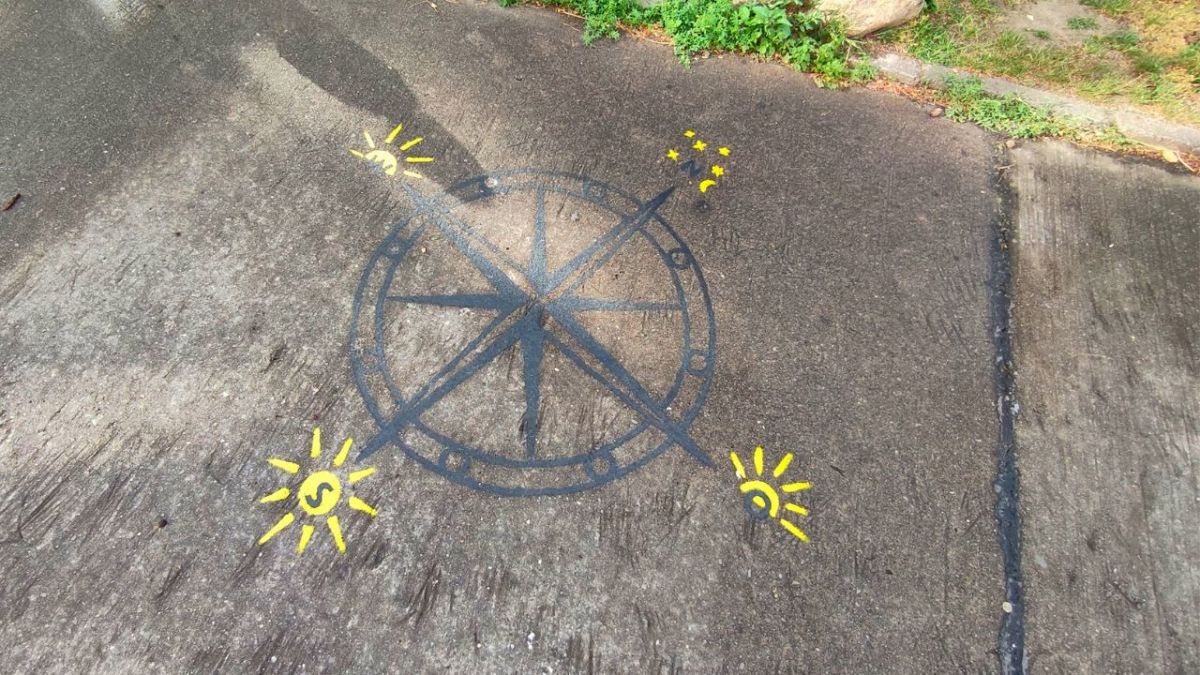
If you have to look around and find your bearings every time a disaster occurs, it will cost you unnecessary time and resources.
If you have just moved to a new location, look around and make sure that you can at least orient yourself properly in a short amount of time. This way, in case of an emergency, you know which places are available to you and what circumstances (e.g., weather) you should prepare for.
However, when I say "surroundings", especially regarding integration, I also mean your neighborhood.
Take a look around and get to know the people in your surroundings. Perhaps you will find, optimally, other people who are concerned with crisis preparedness, with whom you can exchange ideas and learn from. A strong group is always better than an individual.

Of course, you should also be able to get by on your own, but it can be tremendously helpful to be part of a group.
Even if there's no one you get along with or that's suitable as a group member, you'll find out whom you'd rather stay away from in case of an emergency.
5. Don't store all emergency supplies in one place
This point may not be easy to implement, but you should heed it. You never know when and where an SHTF scenario will occur.
Therefore, you must be prepared everywhere and at all times. Do not misunderstand me: I do not expect you to rent numerous bunker facilities that you can access from anywhere in the world.
You should focus on the places where you are often located.
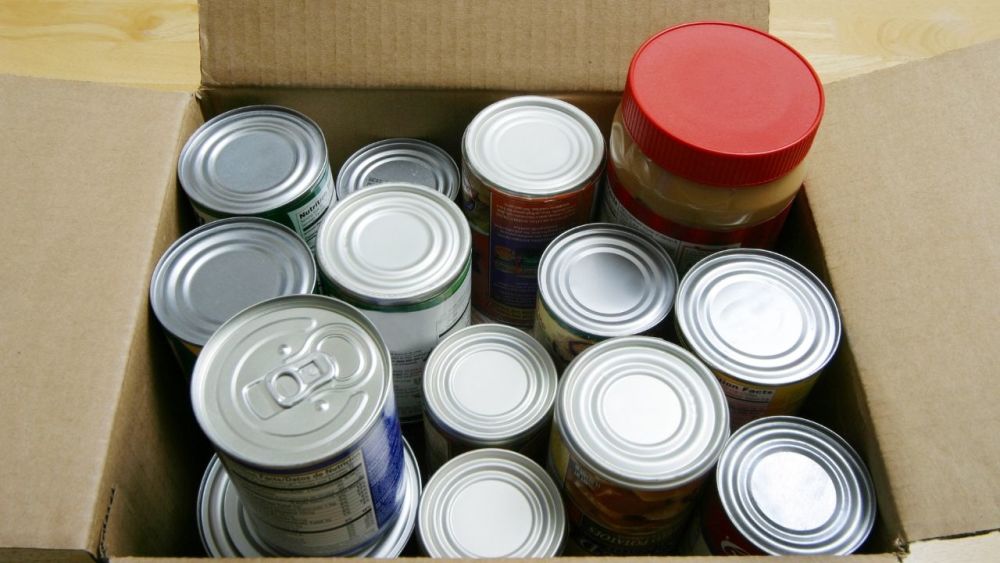
Therefore, keep some supplies ready in your car, at work and of course at home or wherever you frequently stay.
Naturally, you cannot place a large amount of canned food and water canisters at every location, but a little preparation always helps.
A bug-out-bag in the car or at work can work wonders and guarantee your ability to act in case of an emergency.
If you don't know what a bug-out-bag is, simply read my article on the subject "What is a Bug Out Bag? - The Ultimate German Guide".
6. Conduct trial runs
It's great if you have a supposedly waterproof plan that's meant to help you survive in case of emergency.
However, you should have conducted at least one trial run beforehand to check if your plan is practical in real life. Plan your routes in advance, examine various routes and paths more closely.
Tools such as the water purification system, fire extinguisher or first-aid kits should also be checked in advance for completeness and functionality.
The worst thing would be if a tool you rely on doesn't work (anymore) in case of emergency. Such accidents can be avoided by responsible and regular testing.
The same applies to various plans you make. Check their timeliness and ensure that important circumstances have not changed, rendering your plans useless.
7. Never neglect morale and entertainment
Many preppers tend to focus solely on the obvious things necessary for survival, such as water, food, and escape routes.
While these things are certainly essential, you should never neglect the human psyche.
Entertainment and occupation can have a powerful influence on a person's psyche and morale.
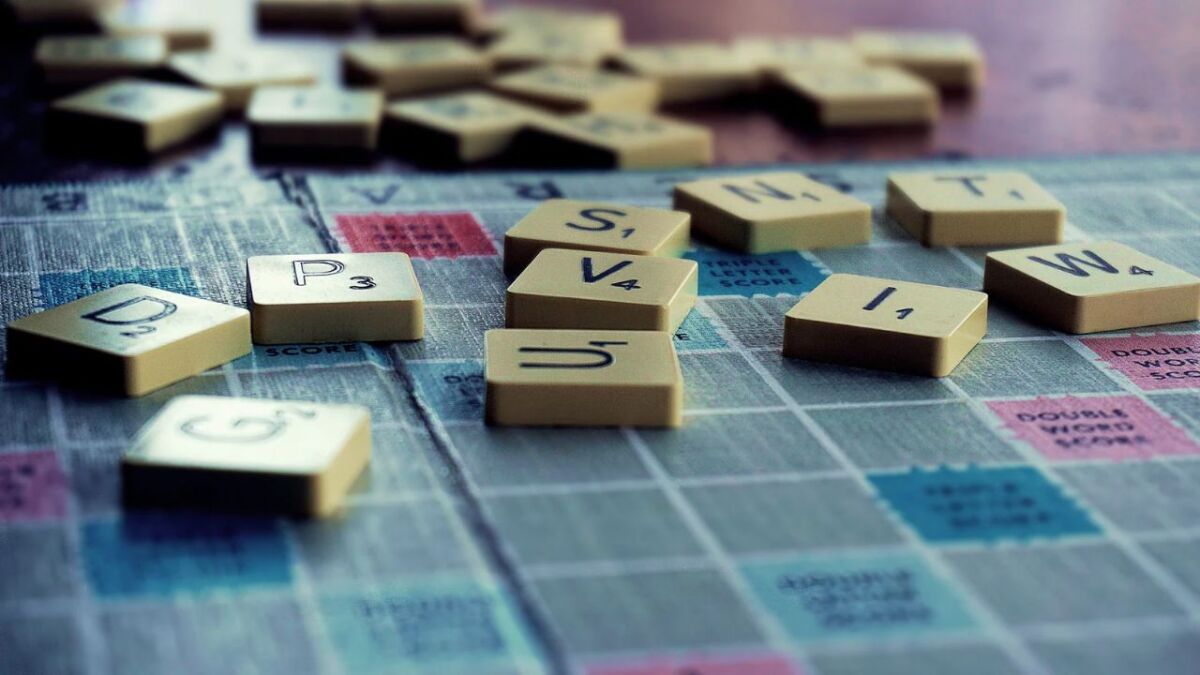
It's all well and good if you and your family can tough it out for a long time. But even that won't help much if your morale declines over time and you're headed straight for depression.
You certainly can't afford to be psychologically unstable in a situation like this. So make sure you have leisure time activities available.
Whether they're games, music, books, or other forms of entertainment doesn't matter. What's important is that you enjoy it and can occupy yourself for a while.
8. Involve your family in your plans
If you have a family at home, you're no longer solely responsible for yourself. You're not just undertaking crisis prevention for yourself, but also for your loved ones.
You need to prepare for them, take care of them, and involve them in your plans as best you can.
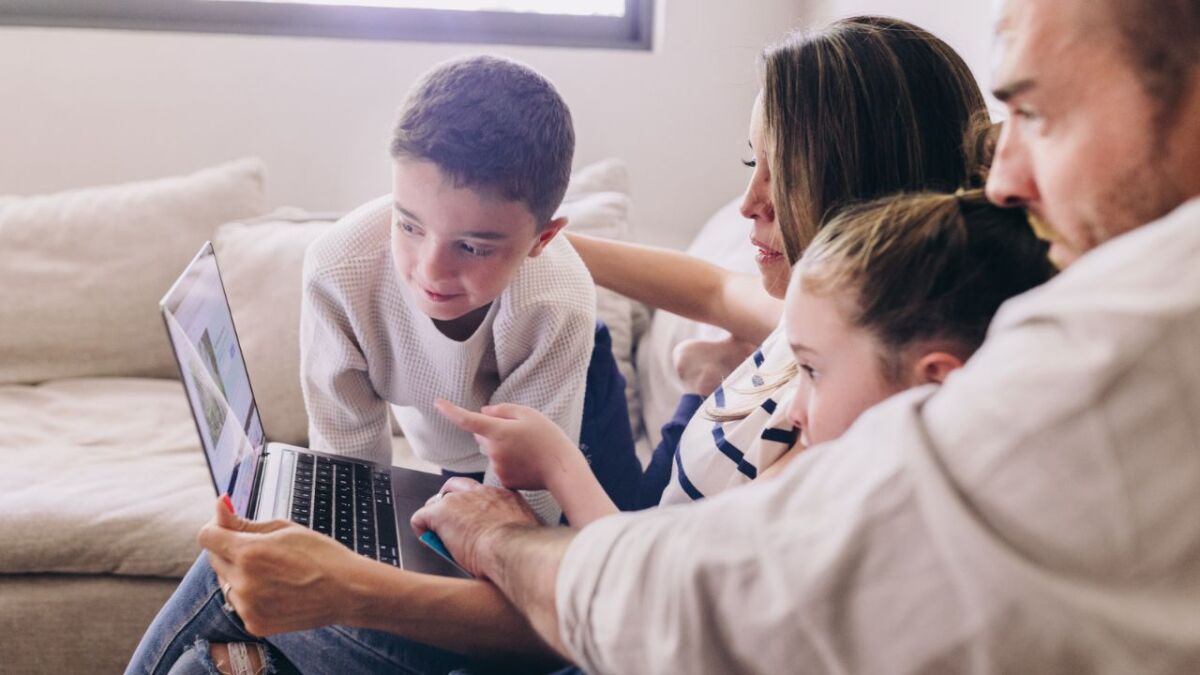
Depending on the age group and condition of your family members, you can involve them more or less in your plans.
They should definitely be informed, if possible. You can teach children your preparations playfully, while involving teenagers and adults fully.
You can develop a special protection concept for older people, small children, and other vulnerable groups, as these groups usually require more help than others.
Inform your family about your intentions as well as you can, maybe they can be enthusiastic and contribute their part.
9. Never neglect your physical fitness
If possible, keep yourself physically fit and healthy (laziness is no obstacle, by the way).
I know, in our society today, which is characterized by technological progress and luxury goods, the need for physical fitness to accomplish the tasks of daily life is hardly present anymore.
But, when a crisis occurs, this looks entirely different. You will have to walk more, work physically, make various decisions, lead groups or your family, maybe eat less occasionally than before etc.
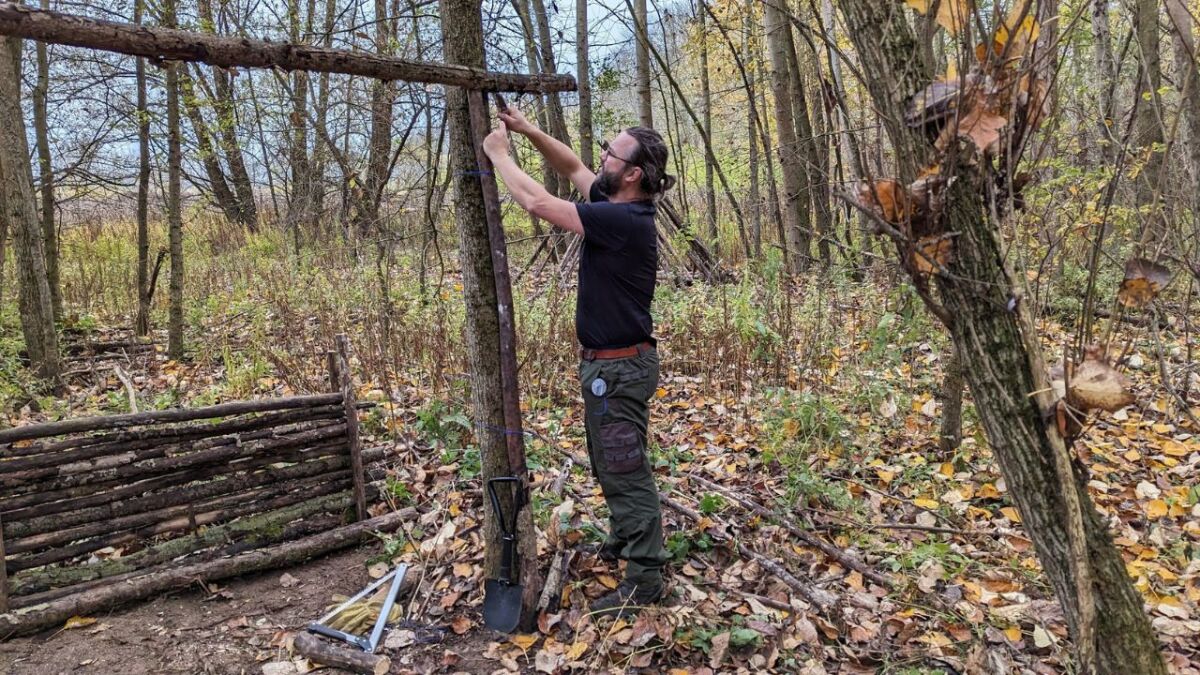
Fact is: physical fitness is absolutely necessary.
Make sure that you can carry heavy weights or cover long distances without falling by the wayside.
I know, many preppers would rather not hear that. It's not about becoming the next track and field champion, a professional bodybuilder, or a tough commando soldier of the Bundeswehr special forces.
You just have to ensure that you stay fit and healthy for a long time to survive physically and mentally challenging situations unscathed.
Finally, you want to stay with your family, friends and loved ones for a long enough time, don't you?
Read also
Body training in the forest: Effective workout and sports (Forest Fitness). – Discover the power of Forest Fitness! Learn how to use the forest as your personal gym, strengthen your muscles, and reduce stress at the same time.
10. Provide communication options
In case of an emergency, there is a possibility that the power grid collapses and you have almost no way to recharge your mobile phone battery (unless you own a power station).
Over time, your communication options break down one by one. However, you can prevent this by preparing in advance for such eventualities.
So take a look around for satellite phones, crank radios, walkie-talkies, or other emergency gadgets that will provide you with numerous communication or information gathering options in case of an emergency.
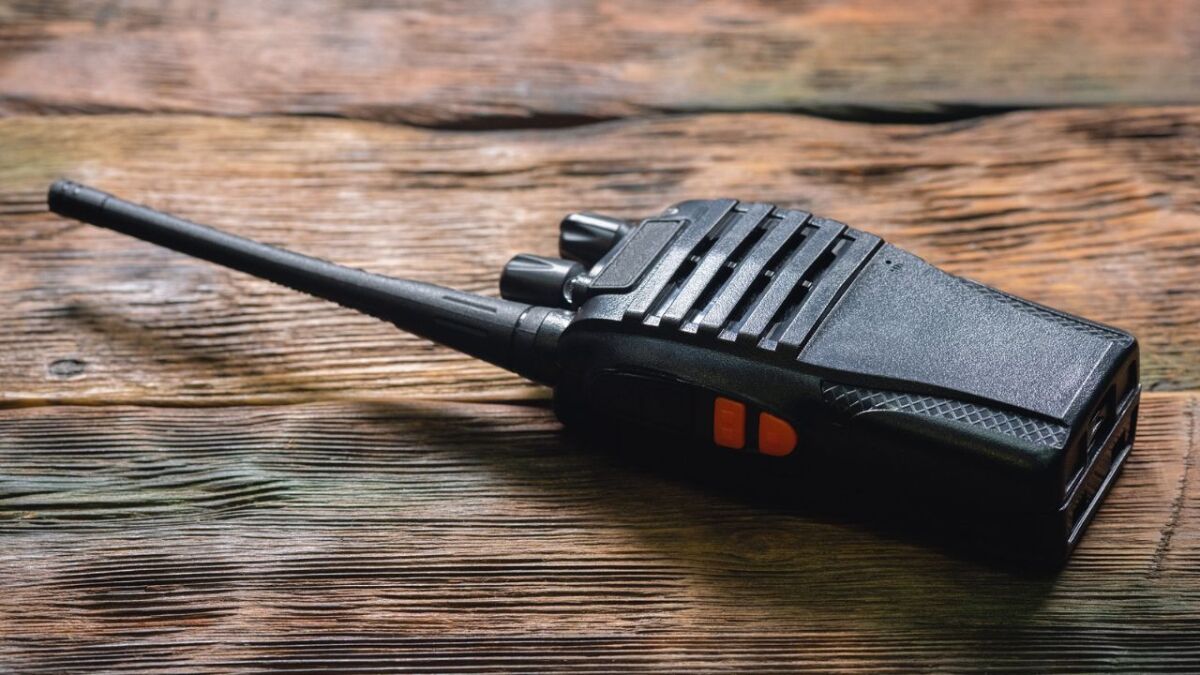
Also read:
The best crank radios 2023: Perfect for outdoor adventures and power outages - Outdoor-ready and crisis-proof: Our recommendations for the best crank radios. Discover the best crank radios in our comparison (with buying guide).
11. Dedicate yourself to gardening
Don't misunderstand me here: I don't mean mowing your lawn, trimming your hedges, and other activities commonly known as "gardening."
I specifically mean growing herbs, vegetables, fruits, and other plants that can be useful to you.

You can start small by creating a small garden on your balcony or windowsill, where you can grow some medicinal herbs or spices.
This guide will help you build your own home pharmacy through herbs, and here you can find 16 fast-growing vegetables for a crisis.
Over time, you can, of course, increase your gardening and grow more, depending on the space available to you.
This way, you provide yourself with fresh food that you know where it comes from, and you also acquire a little hobby that can provide you with occupation and satisfaction when SHTF.
In addition, the self-made garden brings a few more advantages that you may not have even considered:
- You're doing something for your health, both physically and mentally. Healthy, additive-free food strengthens your immune system. The occupation keeps your psyche healthy.
- You can supply yourself with plant-based proteins if you grow certain plant species. So you prevent deficiencies when meat or supplements become scarce.
- You can preserve some self-grown foods, for example by pickling, making them last longer.
- You bring variety to your kitchen, which can keep you motivated.
Read also
Edible plants: this emergency food can be found in the forest (list + pictures) – Not sure which plants you can eat in an emergency? Let's learn together and I'll show you how to avoid starving in the forest.
Questions and Answers about Emergency Preparedness Tips
How can I prepare for a disaster?
There are many things you can do to prepare for a disaster, such as having an emergency plan and supplies ready, educating yourself about disasters, and being aware of your surroundings.
What does the German government recommend as emergency supplies?
The German government recommends that every household should have an emergency supply of food and water that will last for at least 10 days. Find more information here at the BKK.
What to do in case of a power outage?
In the event of a power outage, there are several things you can do to stay safe and comfortable. If you have candles or flashlights, be sure to locate and have them within reach. It is also a good idea to have some non-perishable food on hand. If you have battery-powered electronic devices like a radio or alarm clock, keep them nearby and charged so you can stay up to date on the situation. Try to remain calm and avoid panicking, as this will only make the situation worse.
Conclusion: Prepping requires all-round talents!
As you have seen, too strictly entrenched specialists often have difficulties with prepping. You must keep an eye on the overall situation, so you have both external and internal factors in mind.
In plain language, this means that you must always take care to stay healthy and fit while making your environment as usable as possible for you and involving your family in your plans.
Whatever happens, one thing is and remains clear: The earlier you start preparing, the better!
Ideally, you should start your preparations now and ensure that you are not overwhelmed by an SHTF scenario, but are optimally prepared.
And if you have little money for your purchases, read my guide on how to start preparing with a small budget.
Thank you for your attention and trust!


Author of the guide
Martin Gebhardt
Hey, I'm Martin. On my blog, you will learn the basics and numerous details about living in the wild. I think survival, bushcraft and the good life in nature are the keys to happiness. Find me here on Instagram or on YouTube. You can find more about my mission on the About Me page.
Was this guide helpful?
16 people found this guide helpful.
5.00 out of 5 points (16 Ratings)
Comments (0)
This post may contain affiliate links. So if you click on the links and make a purchase, I will receive a small commission at no additional cost to you. Click here, to learn more about it.


